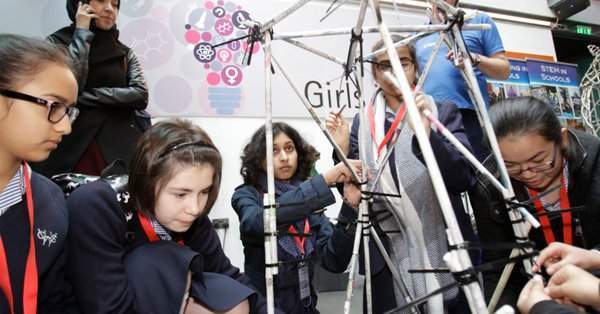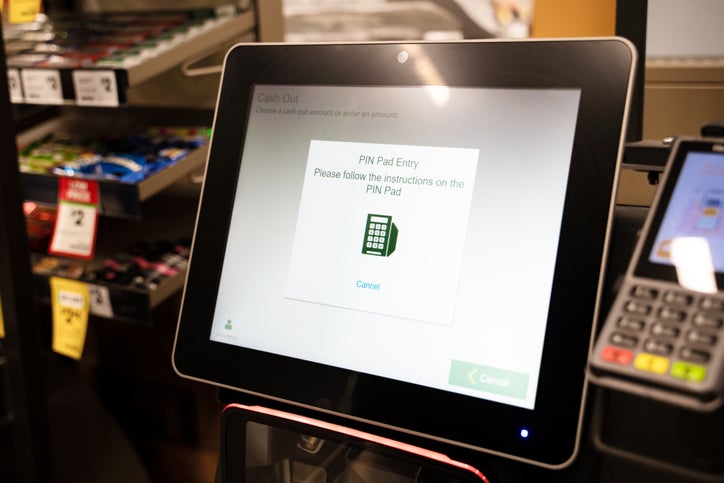
Girls in the UK lose interest in science, technology, engineering and maths (STEM) subjects between the ages of 16-17, according to a survey commissioned by tech giant Microsoft.
Most girls in the UK become attracted to STEM subjects just before the age of 11 before their curiosity wanes, so there needs to be more emphasis on STEM subjects in the primary school years.
“Governments, teachers and parents only have four or five years to nurture girls’ passion before they turn their backs on these areas, potentially for good,” said Microsoft in a statement.
Just over 22,000 British women graduated in 2016 in the five core subjects most relevant to construction, engineering and technology, compared to over 65,000 men according to research carried out by WISE, a charity campaigning to improve female representation in the STEM sector.
“Conformity to social expectations, gender stereotypes, gender roles and lack of role models continue to channel girls’ career choices away from STEM fields,” said Martin Bauer, a psychology professor at the London School of Economics.
What can we do?
So, what does the survey suggest governments should do to ensure more girls will be attracted to a career in the STEM sector?
How well do you really know your competitors?
Access the most comprehensive Company Profiles on the market, powered by GlobalData. Save hours of research. Gain competitive edge.

Thank you!
Your download email will arrive shortly
Not ready to buy yet? Download a free sample
We are confident about the unique quality of our Company Profiles. However, we want you to make the most beneficial decision for your business, so we offer a free sample that you can download by submitting the below form
By GlobalDataFirstly, younger women need more female role models who work in STEM subjects to look up to. Mentors already working in the field can play a crucial role in inspiring others to follow their example.
Just over 60 percent of girls who took part in the survey said they would like to see more encouragement coming from professional female coders, developers and lab scientists
Secondly, girls are more likely to pursue a career in STEM if they think gender equality is a priority in the sector.
“Perceived inequality [in the workplace] is actually putting them off further STEM studies and careers,” said Microsoft in a statement.
Seventy percent of girls in the UK said they would be more willing to get a job in the STEM sector if there were equal numbers of men and women employed in the field.
Thirdly, schools need to offer hands-on exercises to make STEM subjects more engaging and relevant.
Teachers must demonstrate how maths, for example, can be applied in real-life situations. About four in 10 girls said they don’t get enough practical experience in the classroom.
“The research reveals that we can’t afford to wait until girls are thinking about university courses to foster their interest in STEM,” said Cindy Rose, Microsoft’s UK CEO in a statement. “To stop the drop-off in interest in STEM at 16, we’re working with governments, teachers and non-profits to modernise the curriculum and provide better access to mentors.”
James Brown, executive director at the Stem Ed Coalition, a Washington-based alliance campaigning to improve STEM education agrees with the Microsoft survey’s recommendations.
“Getting more women and girls into the STEM fields is a very, very important issue. We need more and better research like this study on the social, economic, and classroom practice factors at play,” he told Verdict.
“Mentorship and hands-on learning are two important factors. We also need to improve how we train early grade educators so they can understand some of the social factors going on that may unconsciously steer girls away from STEM.”
Stemettes is a UK-based social enterprise organisation launched in 2013 which runs mentoring schemes, panel events and activity days specifically geared towards getting girls aged between 5 to 21-years-old interested in STEM subjects.
Over 15,000 young women have taken part in Stemettes’ events over the past four years. In the last year, 82 percent of them reported feeling more confident in their STEM abilities as a result of working with the organisation.
Its founder, 27-year-old Anne-Marie Imafidon MBE was the youngest girl ever to pass A-level computing at aged 11.
She told Verdict it is time to normalise the notion of women in STEM careers.
“We need a female technical character in Eastenders to help normalise the notion of a woman in STEM because most girls can’t think of women on-screen who are in the industry,” said Imafidon. “We also need a lot more companies in STEM to link up with us so we can expand the work we already do, especially outside London in the Midlands and in Scotland in particular.”
Yesterday, US president Donald Trump signed two executive orders authorising NASA and the National Science Foundation to encourage more girls to get into the STEM sector.
News Alert: @POTUS signs two bills encouraging women in science, business. pic.twitter.com/rwuNqiSs4x
— Fox News (@FoxNews) 28 February 2017
“That’s really going to be addressed by my administration over the years with more and more of these bills coming out [that] address the barriers faced by female entrepreneurs and by those in STEM fields,” said Trump on Tuesday.






